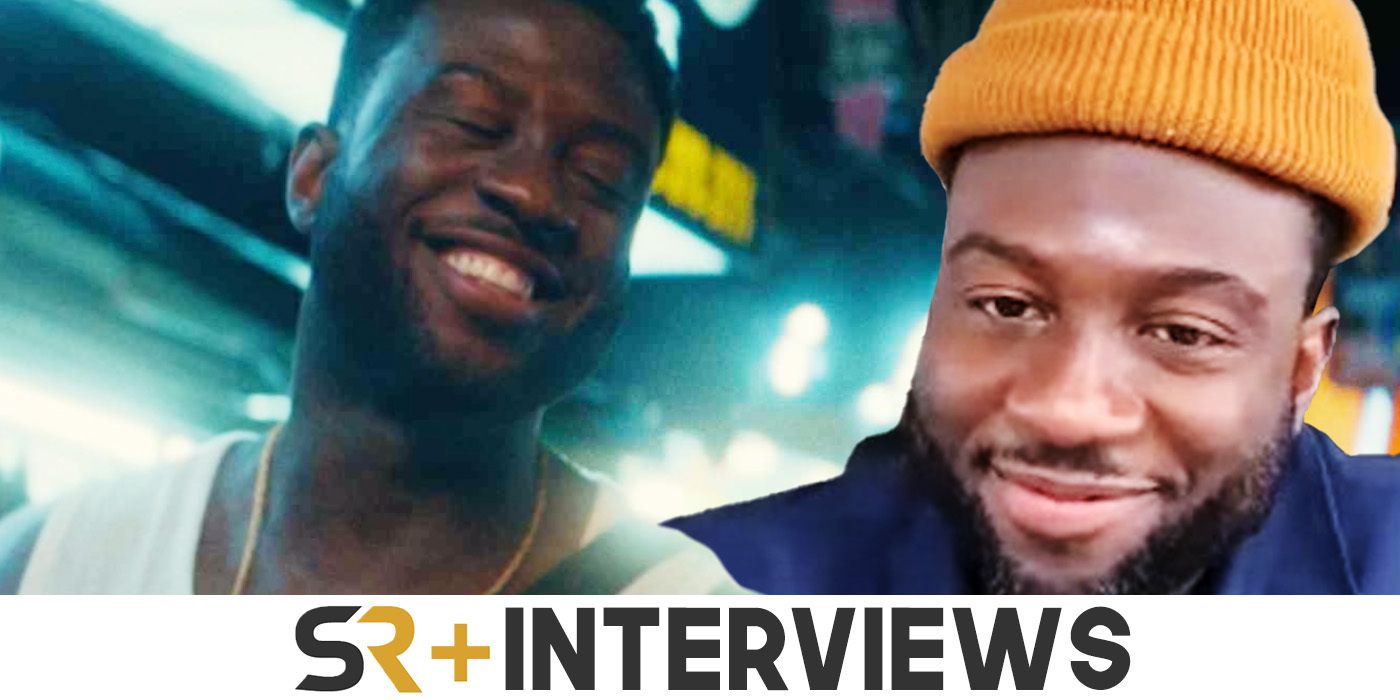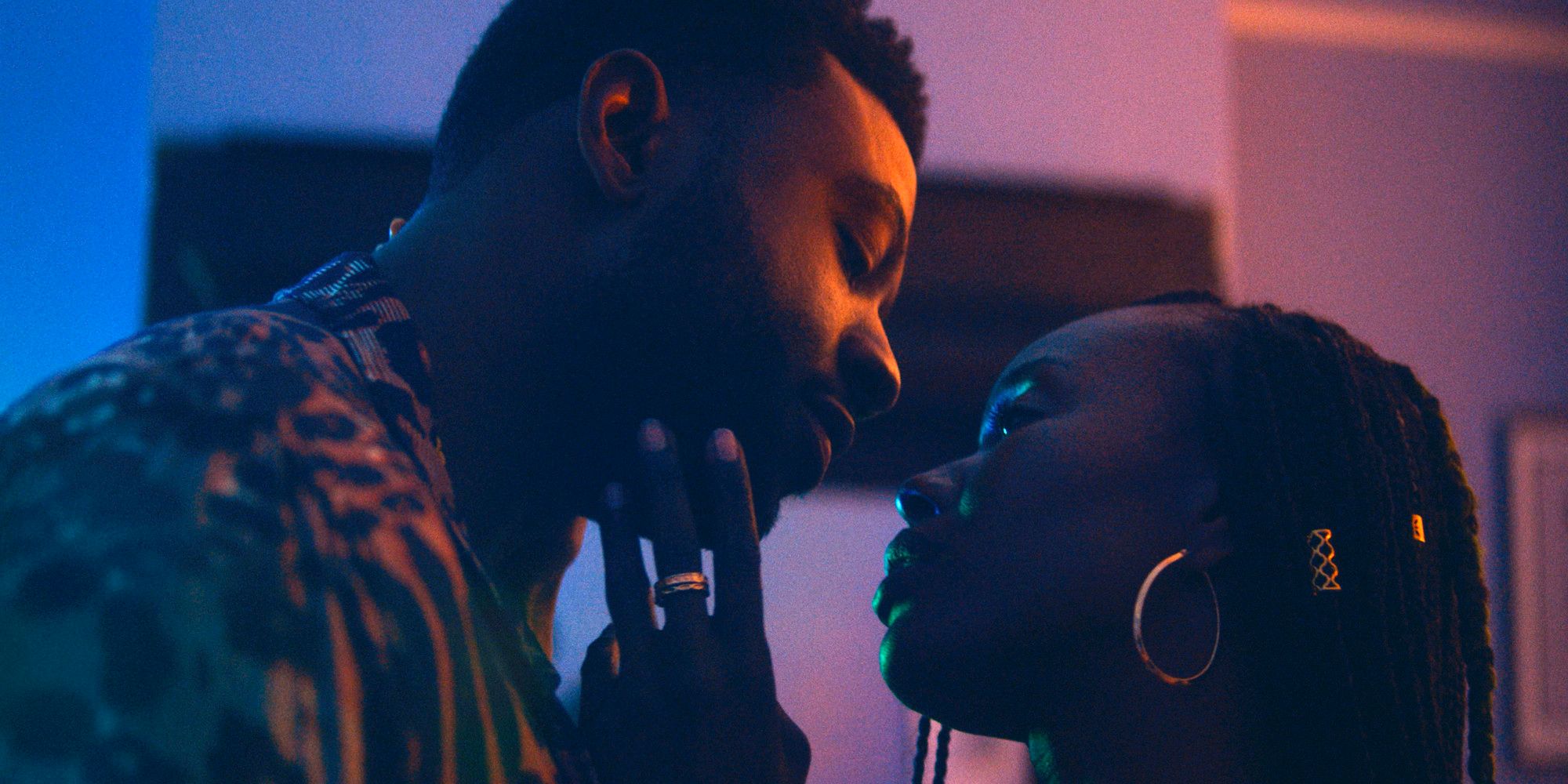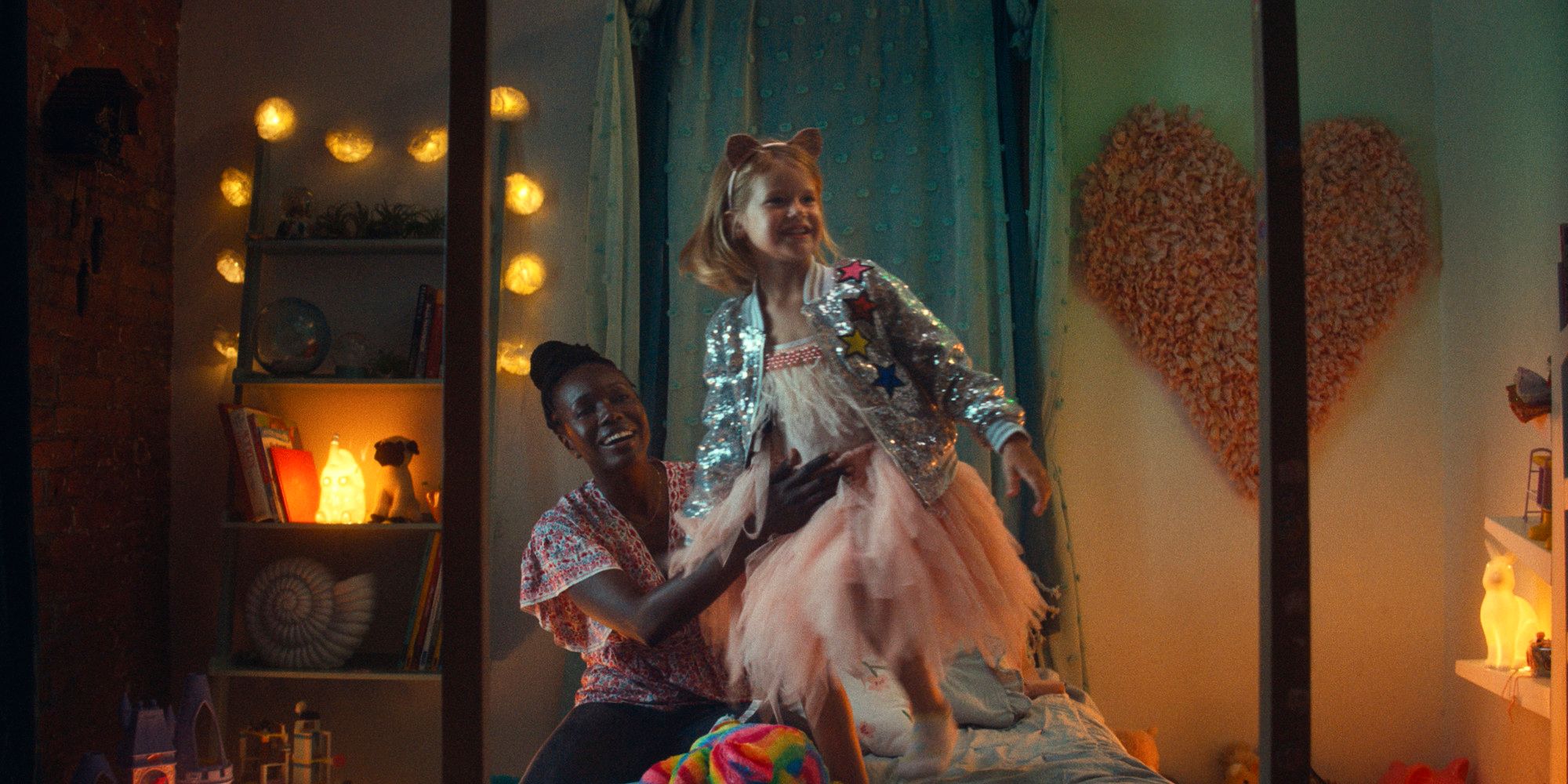Sinqua Walls is best known for his role as Vernon Boyd in Teen Wolf, but he takes on a different challenge in the Prime Video movie Nanny. Written and directed by Nikyatu Jusu in her feature debut, Nanny follows a Senegalese immigrant as she navigates her new life in the U.S. as a nanny for a wealthy family while working to bring her own son over from Senegal.
Nanny began its journey at the 2022 Sundance Film Festival and has skyrocketed ever since. It has played at a number of film festivals, in theaters, and now it’s finally streaming on Prime Video. Jusu does something unique by including horror elements and West African lore in a character drama, and the film has received a mostly positive reception from critics alongside its awards run.
Screen Rant spoke with Sinqua Walls about portraying Malik, working with Jusu on Nanny, his chemistry with Titans star Anna Diop, his audition process, and what it meant to him to be a part of such a special film.
Sinqua Walls On Nanny
Screen Rant: You worked with the wonderful Nikyatu Jusu on this film, and what was your audition process like and how was it collaborating with her on such a layered story like Nanny?
Sinqua Walls: Yeah, working with Nikyatu was a gift for me. I always say I hope that we can work together as many times as possible in the future. The audition process was somewhat like our interview process. It happened all on Zoom and it was an organic process. I think she already had an idea of the people that she was considering. So there wasn't this expanded list of people, but there was a very curated list of people that she really wanted to see who could inhabit the role, myself being one of them. And we had a Zoom call. We talked about our backstories, we talked about why this story mattered to her. We talked about the history of how long she had spent with the characters and with the script and the parallels between her own life and where she was inspired by.
And I kind of told her what I saw in the story and in the scripts organically. And it seemed like we had a connection. And then Anna and I had a chemistry read together just to see if we could connect chemistry wise. And I guess we did. We had enough chemistry that they liked it. And I got the call and obviously, they gave me the job. Even though it wasn't in person, it was one of the most fun chemistry reads with someone I ever had. I think Anna, obviously it translates into the story, but we just had a great connection and it played on screen, but it also played in the room when we were doing it on Zoom as well.
You mentioned the chemistry read with Anna. Did you work on it anymore while on set?
Sinqua Walls: We did consistently. And I think one of the things that we both were really committed to was really getting to know each other. As we all are fans of film and cinema and great stories and great scripts, you learn that so much of life happens away from the actual filming, which is just spending time to get to know a person. And then a lot of the natural communication and natural energy you have then becomes infused into the story, which makes it come alive. So as soon as we knew we both were the choice to go on this journey with Nikyatu, the first thing we did was get on a call, another FaceTime, Zoom call just to talk about getting to know each other and finding the synergy between each other's connection.
And I understand a lot more about her and her mother and we talked about me and we were able to just really get to know each other as friends, to build that organic rapport over consistency of phone calls. And then when we actually got to New York together, we just made time for each other. I think it was such a blessing to me to have a scene partner and a castmate that just genuinely I liked. And she was so open, and I think I would imagine anyone that's had an opportunity to work with Anna to this point discovers how open she is. So we were able to find this collaboration that made it fun. And that is a testament to both of us really just being committed to wanting to make each other comfortable.
You mentioned earlier that you talked to Nikyatu about your own ideas after you read the script. What was your first reaction when you read it?
Sinqua Walls: Ooh, I've said this so many times over the years — I read a script and I can go, even if I'm not in it, “I'm going to watch it,” I know it's a good script. And when I read her script, I was like,”Oh my gosh, I can't wait to watch this.” But it jumped off the page for me. I was familiar with Suicide by Sunlight [Jusu’s short], so I had an idea of her as a visual storyteller and not so much an awareness of her writing. And her writing is just impeccable. I think to be a great filmmaker, you have to be meticulous and you have to write it, come back to it, let it go, come back to it again. And what I really, really respect about her as an artist is that she's so critical of herself. And when I read the script, I knew it was something that she had put her heart into finally delivering. And you could feel that through each character from the words, from the narrative descriptions.
The movie has all of these various elements and themes. How did you approach all of these themes as an actor and what kind of conversations did you have with Nikyatu? Did those conversations affect your performance?
Sinqua Walls: Absolutely. I think I approached it from a perspective of always being a student. Growing up as an African American and still learning a lot of layers of my own history, I'm not as aware of the lineage that Nikyatu did understand from being Sierra Leonean and having that be something that she was brought up with, or Anna being Senegalese and being brought up knowing that. So it gave me a space to really just listen.
And I think Malik's natural inquisition of where are you from, that's a nature of Sinqua being like, “where are you all from and what is this? What's the history? What's the story? What's prideful to you? What matters to you? What do you carry with you that we may feel, but we don't necessarily know what the definition is?” And so, in that space, it just gives me a little bit more of an appreciation for each of those women, Anna and Nikyatu, and that inquisition just made it so alive for me.
In a previous interview, you mentioned that you love the way the dignity and courageousness of Black men was portrayed onscreen. How do you feel Malik conveyed that through his actions? And what aspects of that, if any, do you carry with you now?
Sinqua Walls: Absolutely. I think it was really important to me to play characters that are really versed in duality. And we don't place them in one systemic environment, but they can traverse many waters. And I think that's very similar to me in life, having gone through different life circumstances and elevating and growing. And what I love about the portrayal of Malik was in the script. Being a domestic worker is a very valiant job. And I think sometimes in society, we overlook that because of what society depicts as valiance or success. But when you're looking at people who are just trying to work every day, provide for their families every day and do the best they can, you discover the valiance and the courageousness of who these people are.
And for Malik being a doorman, how he carries himself every day as a doorman, I think we see his dignity. In the element of watching him in his interaction with his grandmother is where we see his dignity and his ability to not only support a strong woman in his grandmother, but also have patience and ease and listen. And I think more examples of that are really important. And so, that was already on the page for me, but it's already something that I feel inside and that synergy between myself, the script and Nikyatu just played because of those elements.
The movie came into Sundance without distribution, and now you've been on this intense press tour, it played at film festivals, and it’s out on Prime Video. What has that been like for you, and what has that meant for you to experience that as a cast and with the director?
Sinqua Walls: It's a gift. [I’m] just grateful because so many times you do projects, and you hope that they get the legs of Nanny, and sometimes they fall short. But to have that, it was such a labor of love and everyone was invested for all the right reasons. Not just the actors, not just the directors, the filmmakers, the producers, but the crew as well. Everyone was invested for all the right reasons. Everyone was sacrificing for all the right reasons. And I think everyone won because of it. And so for me, it was just like it's gratitude more than anything to see it come to fruition and really just pride, just being proud of Nikyatu, being proud of Anna and seeing that and just being a part of it, I'm just grateful.
About Nanny
In this psychological horror fable of displacement, Aisha (Anna Diop), a woman who recently emigrated from Senegal, is hired to care for the daughter of an affluent couple (Michelle Monaghan and Morgan Spector) living in New York City.
Haunted by the absence of the young son she left behind, Aisha hopes her new job will afford her the chance to bring him to the U.S., but becomes increasingly unsettled by the family’s volatile home life. As his arrival approaches, a violent presence begins to invade both her dreams and her reality, threatening the American dream she is painstakingly piecing together.
Check out our other Nanny interviews here:
Nanny is currently available to stream on Prime Video.



